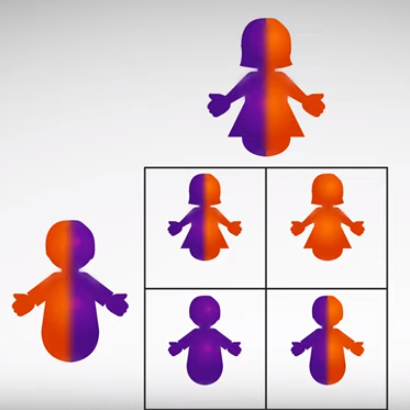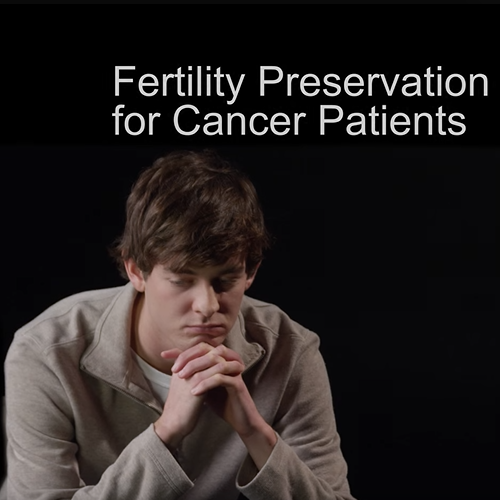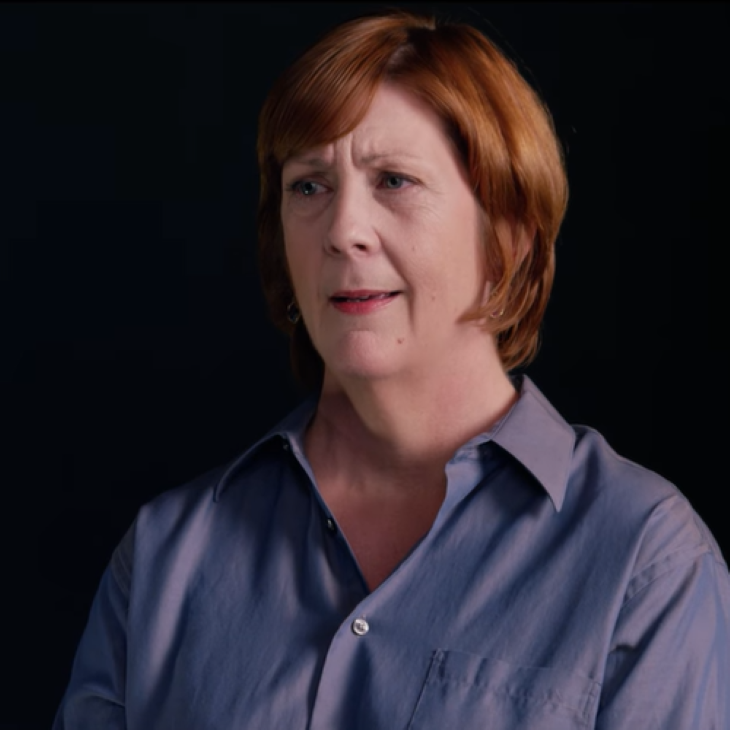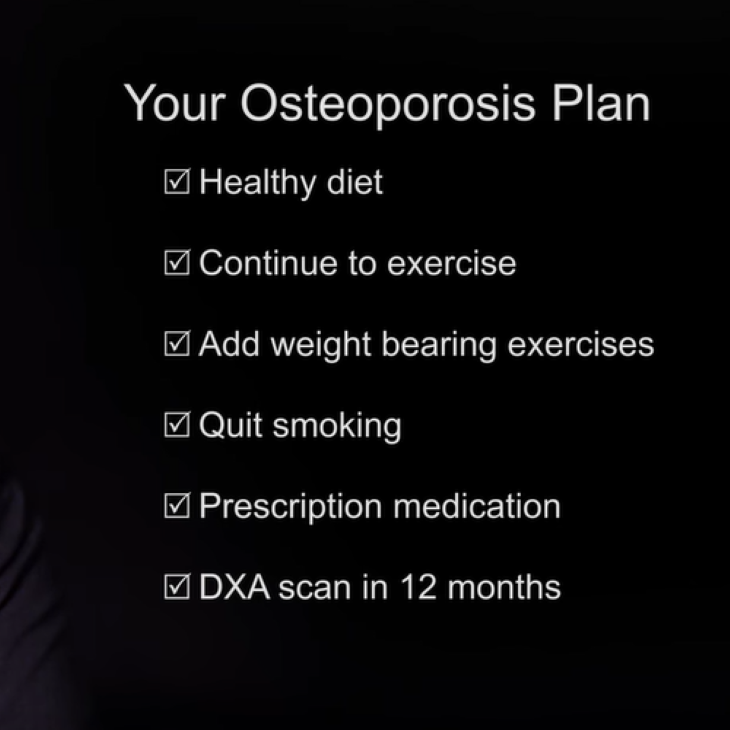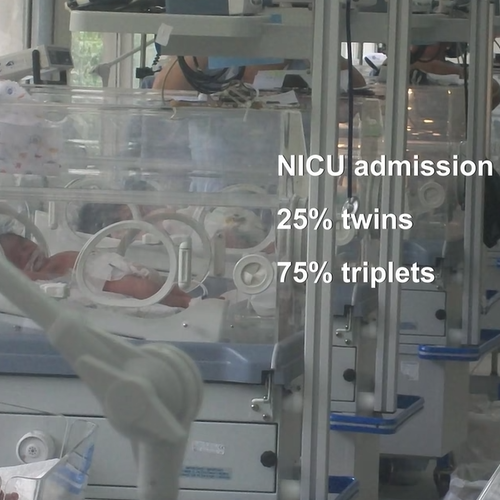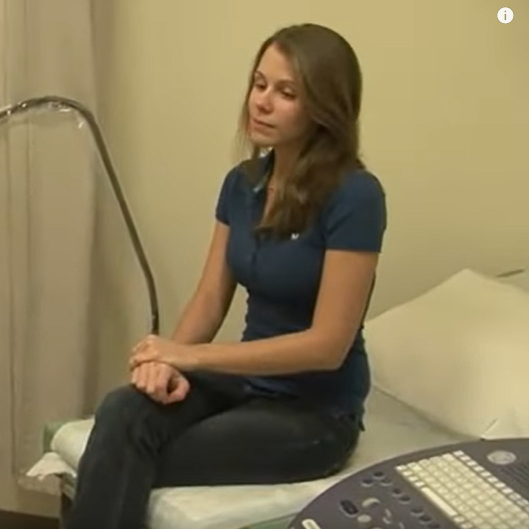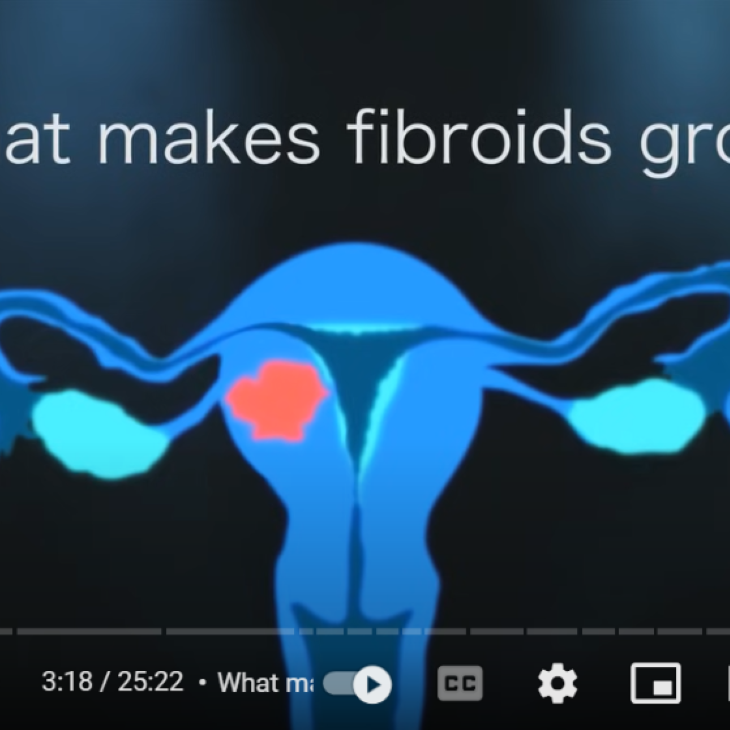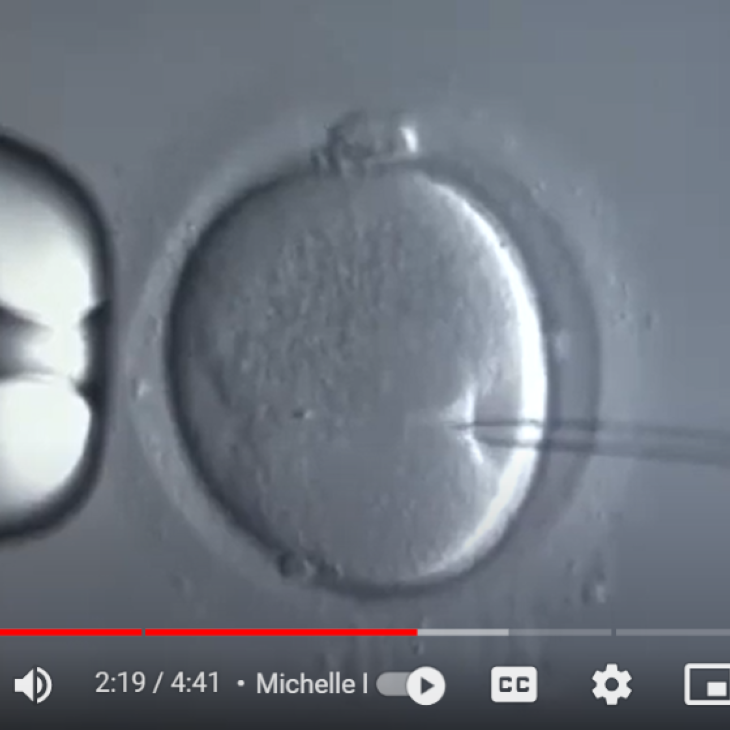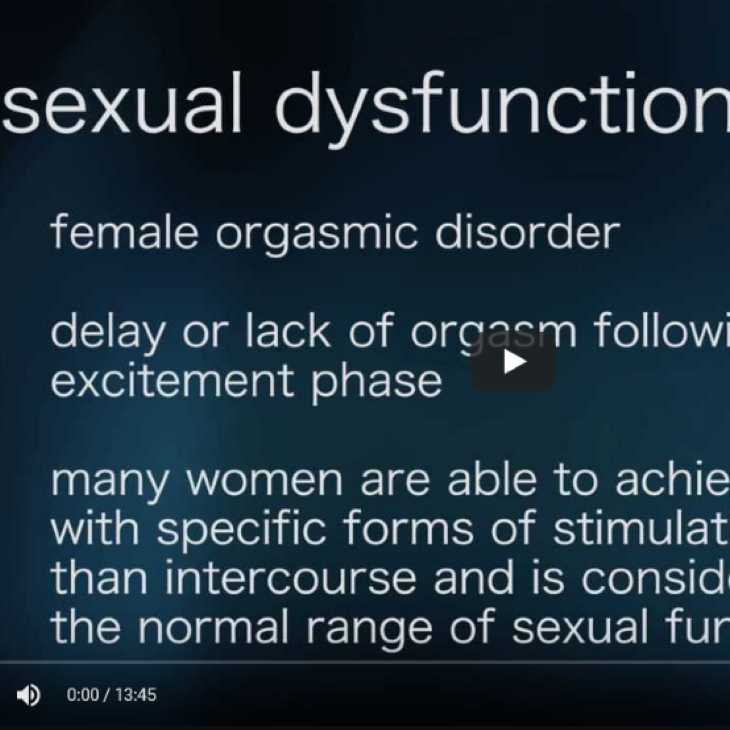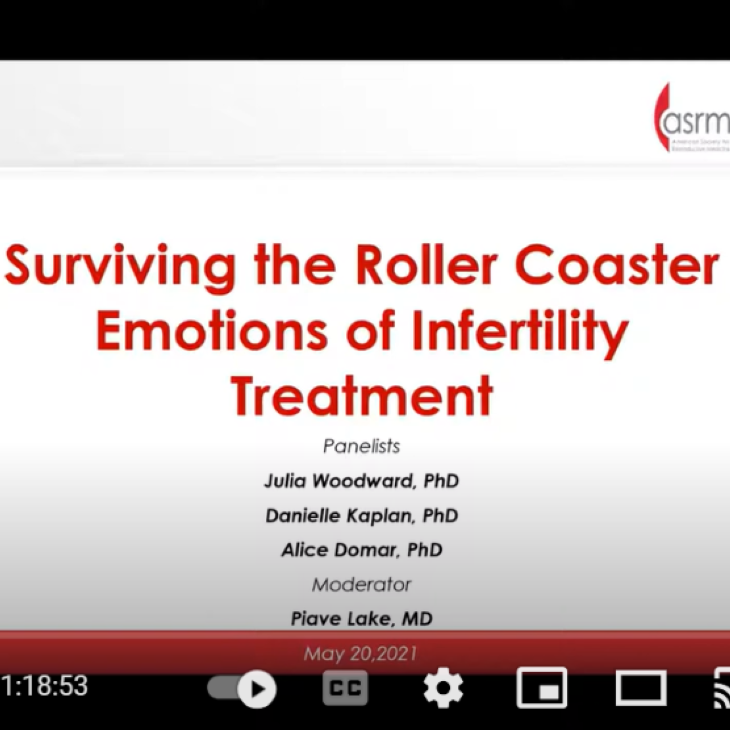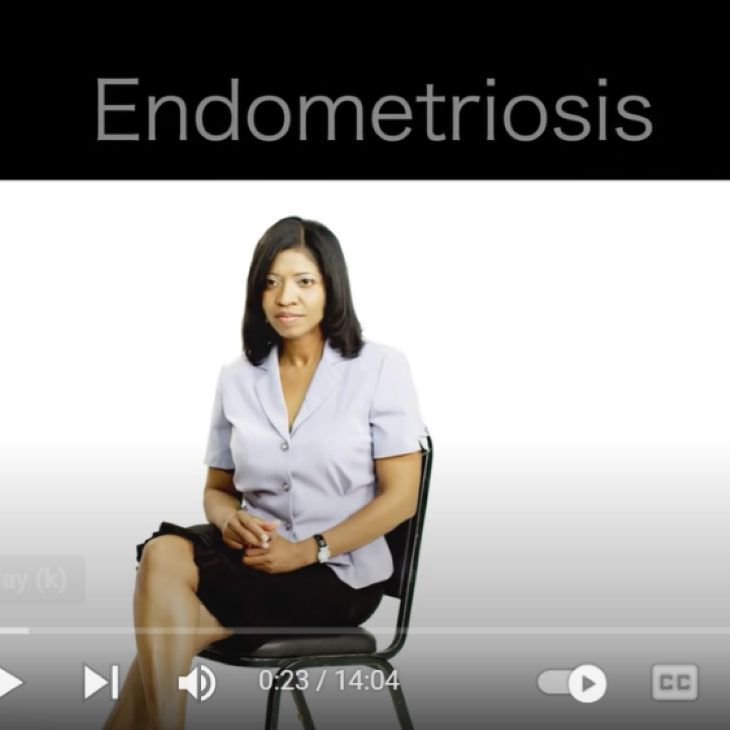
Preparing for In Vitro Fertilization (IVF): Lifestyle Factors
This SART micro-video discusses lifestyle factors that may affect in vitro fertilization, or IVF, outcomes.
Transcript
This SART micro-video discusses lifestyle factors that may affect in vitro fertilization, or IVF, outcomes.
Slide 1
Hello. My name is Dr. Brooke Rossi and I am a practicing reproductive endocrinologist and infertility specialist. This micro-video discusses lifestyle factors that may affect in vitro fertilization, or IVF, outcomes. Although many of the topics discussed also affect general fertility, for the purposes of the video, we are focusing on IVF.
Slide 2
Several factors known to affect IVF success are listed on this slide. They include age, weight or body mass index, smoking, alcohol use, diet, vitamins, supplements and stress. For the purposes of this video, we will focus on age, weight, and smoking.
Slide 3
As we will discuss, increasing age and high or low weight or body mass index, decreases the chance of getting pregnant and having a baby with IVF. In addition, smoking also decreases success with IVF.
Slide 4
Let’s take a look at the SART website and data to demonstrate the impact of age on IVF outcomes. SART is the Society for Assisted Reproductive Technology. As you can see, as a woman ages through her late 30’s and 40’s, her chance of live birth, or the chance of having a baby from 1 IVF cycle, falls significantly.
The chance of live birth falls, because as women age, there fertility goes down and the chance of miscarriage increases. The result is a lower chance of having a baby.
Slide 5
One of the other major influences of IVF success is weight.
We can understand the impact of weight by looking at the SART patient predictor. This patient predictor can be used to estimate a patient’s chance of having a live birth with a fresh IVF cycle. It can be found at this website. It allows us to see the impact of weight and body mass index. In this example, if a patient has a weight 140 pounds, her chance of having a baby is about 40%. However, if we hold her other characteristics the same, but change her weight to 240 pounds, we see her chance of having a live birth is almost 10% lower.
You can go onto the SART website and use this patient predictor to see the impact of weight, as well as age, may affect IVF success.
Slide 6
Smoking cigarettes during an IVF cycle may lower the chance of having a baby with IVF. Some of the studies looking at the effects of tobacco use show that women who smoke may have less eggs retrieved during IVF and have a lower chance of getting pregnant. Also, men smoking cigarettes can be harmful to IVF. Even regular second hand smoke can affect IVF outcomes in a negative fashion.
Slide 7
In summary, age, weight and tobacco, as well as other factors can affect IVF success. Although you cannot change your age, be sure to talk with your physician about your chances of IVF based on your age and other fertility factors. Try to be a healthy weight when starting IVF. Finally, don’t smoke and make sure others around you aren’t smoking either.
Videos
Resources For You
In Vitro Fertilization (IVF)
ASRM Releases Congressional Scorecard
Discover ASRM's first Congressional scorecard, detailing positions of the 118th Congress on key reproductive legislation to guide ASRM members in elections.
View the Press ReleaseFertility Care Gets Important Win in California
ASRM celebrates California's SB 729, expanding IVF coverage for same-sex couples and singles, advancing equitable fertility care access.
View the Press ReleaseNation’s Leading Professional Group for Fertility Care Professionals Calls for Passage of Right to IVF Act
ASRM applauds Majority Leader Schumer’s decision to seek reconsideration of the Right to IVF Act.
View the Press ReleaseSART Fertility Experts - Vanquishing Multiples
Learn how a variety of factors such as geography, race, and the availability of comprehensive infertility mandates affect access to effective infertility treatment. Listen to the EpisodeTrump Calls for IVF Coverage, California Legislature Sends IVF Mandate Bill to Governor
The California General Assembly approved a bill mandating most private health insurance plans to provide coverage for In Vitro Fertilization (IVF).
View the Press ReleaseAdvocacy in Action
Join the ASRM Advocacy in Action campaign by making a tax-deductible charitable gift Be part of Advocacy in ActionGet Vot-ER Ready This National Patient Advocacy Day!
Celebrate National Patient Advocacy Day by boosting civic engagement! Order your free Vot-ER badge to help patients register to vote and promote healthy communities.
View the Press ReleaseSART Fertility Experts - Global Access to IVF and the Status of Women
Around the world, there are vast differences in the number of IVF cycles performed per capita. Learn why these differences exist. Listen to the EpisodeASRM marks World IVF Day by doing what we do best – advocating for access to reproductive health care by calling for a House floor vote on the Right to IVF Act
ASRM observed World IVF Day, the day marking the birth of the world’s first IVF baby in 1978, by continuing its advocacy for improvements in IVF policy.
View the Press ReleaseOrder your FREE Vot-ER badge to encourage your friends to vote!
ASRM) is pleased to announce our partnership with Vot-ER, a grassroots organization dedicated to driving civic engagement among healthcare professionals.
View the Press ReleaseASRM Calls for Passage of Family Building Bill
It would increase access to IVF treatments for all Americans, including active-duty service members, veterans, and federal employees.
View the Press ReleaseASRM publishes IVF one-pagers for media use
The documents lay out the clinical IVF process, summarize oversight of IVF in the U.S., and explain how lawmakers can support access to IVF.
View the Press ReleaseASRM Reacts to Cruz/Britt OPED
We are pleased to see Senators Cruz and Britt express their interest in protecting access to IVF.
View the Press ReleaseASRM Files Amicus Brief in Texas Embryo Case
ASRM has filed an amicus curiae (friend of the court) brief in the case of Antoun v Antoun, which is pending before the Texas Supreme Court.
View the Press ReleaseSART Fertility Experts - Recurrent Pregnancy Loss and Implantation Failure
"I can get pregnant, but I can't stay pregnant," is echoed by patients with recurrent pregnancy loss. Listen to the EpisodeSART Fertility Experts - Navigating IVF as a Couple
Mary Casey Jacob, PhD is interviewed by Dr. Daniel Grow, and together they explore the emotional and practical support that couples need. Listen to the EpisodeFertility Rights and Responsibilities
Can a fertility program or clinic deny treatment to patient(s) if there is concern about the ability to care for the child(ren)? Yes. Fertility programs can withhold services if there are signs that patients will not be able to care for child(ren). View this Fact SheetProgesterone supplementation during IVF
Progesterone is a hormone produced by the ovary. View the fact sheetSide effects of injectable fertility drugs (gonadotropins)
Gonadotropins are fertility medications given by injection that contain follicle-stimulating hormone (FSH) alone or combined with luteinizing hormone (LH). View the fact sheetWhat do I need to know about conceiving after surgery on my Fallopian tubes?
Fallopian tubes connect the ovary (where the eggs are stored and grow) to the uterus (womb), where the fertilized egg develops into a baby (fetus). View the fact sheetHydrosalpinx
The fallopian tubes are attached to the uterus (womb) on the left and right sides. View the Fact SheetIn vitro fertilization (IVF): what are the risks?
IVF is a method of assisted reproduction in which a man’s sperm and a woman’s eggs are combined outside of the body in a laboratory dish. View the fact sheetWhat is In Vitro Maturation (IVM)?
In vitro maturation (IVM) is when a woman’s eggs are collected and matured outside the body. This is done as part of an in vitro fertilization (IVF) procedure. View the fact sheetSART Fertility Experts - Recurrent Pregnancy Loss
Candace discusses her experience with infertility, IVF, multiple pregnancy losses and ultimately a successful delivery with Dr. Julia Woodward.Listen to the Episode
SART Fertility Experts - Infertility Advocacy and Government Affairs
In today's episode, Dr. Mark Trolice interviews Sean Tipton about the fact that many infertility patients do not have insurance coverage for treatment. Listen to the EpisodeSART Fertility Experts - Behind the Scenes in the IVF Lab
Dr. Sangita Jindal, helps patients understand the importance of the IVF lab when choosing an IVF program. Listen to the EpisodeSART Fertility Experts - Your Infertility Nurse: Partner in Your Care
Infertility nurse practitioner and health coach Monica Moore explains the essential role of the infertility nurse in the IVF process. Listen to the EpisodeSART Fertility Experts - Genetics and IVF
Genetics is a significant part of advanced reproductive technology screening. Listen to the EpisodeIntracytoplasmic sperm injection (ICSI)
A procedure called intracytoplasmic sperm injection (ICSI) can be done along with in vitro fertilization (IVF) if a sperm cannot penetrate the outer layer of an egg. Read the Fact SheetSART Fertility Experts - Fertility and LGBTQ
In this episode, Dr. Daniel Grow interviews Dr. Mark Leondires, the founder of Gay Parents To Be. Listen to the EpisodeSART Fertility Experts - What is an REI?
These experts in infertility lead IVF programs, perform reproductive surgery, and perform research to enhance the field of reproductive medicine. Listen to the EpisodeSART Fertility Experts - What is IVF?
In this episode, we discuss the ins-and-outs of in vitro fertilization (IVF). Listen to the EpisodeStart with SART
The very first thing you should do when evaluating a clinic is verify that it is a member of SART. Watch VideoPreparing for In Vitro Fertilization (IVF): Lifestyle Factors
This SART micro-video discusses lifestyle factors that may affect in vitro fertilization, or IVF, outcomes. Watch VideoAssisted Reproductive Technologies (booklet)
This booklet will help you understand in vitro fertilization (IVF) and other assisted reproductive technology (ART) that have become accepted medical treatments for infertility. View the BookletThe Difference Between IUI and IVF
It is important to know Intrauterine insemination (IUI) or In vitro fertilization (IVF) can both be successful at helping grow your family. Watch VideoUnderstanding the SART Clinic Report
During this video we will discuss the SART Clinic Report concepts and demonstrate some of the report features. Watch VideoInfertility: an Overview (booklet)
Infertility is typically defined as the inability to achieve pregnancy after one year of unprotected intercourse. View the bookletKristen Ritchie's Story
I spent seven years navigating infertility, which was tumultuous but also a period of tremendous personal growth in hindsight. Read the storyIn Vitro Fertilization Infographics
ASRM has prepared infographics to illustrate the subject of in vitro fertilization (IVF) better. View the infographicsSART FAQ About IVF
Created by the Society for Assisted Reproductive Technology (SART) the following are answers to frequently asked questions concerning in vitro fertilization (IVF). Learn the factsIt takes more than one
Why IVF patients often need multiple embryos to have a baby View the advocacy resourceWhat support for IVF looks like
Bipartisan support for IVF, that is responsible for the birth of over 2% of all babies born in the USA each year, will ensure that families continue to grow. View the advocacy resourceOversight of IVF in the US
In the US, medical care is regulated by a complex and comprehensive network of federal and state regulations and professional oversight. View the advocacy resourceReproductive Aging
Menopausal Transition (Perimenopause): What Is It?
The menopausal transition (perimenopause) is the period that links a woman’s reproductive (childbearing) years and menopause. Read the Fact SheetOsteoporosis
Osteoporosis and osteopenia are conditions of having low bone mass (density). View the Fact SheetNormal and abnormal puberty in girls
Puberty refers to the specific physical changes that happen as a child develops into an adult. View the fact sheetPreparing for In Vitro Fertilization (IVF): Lifestyle Factors
This SART micro-video discusses lifestyle factors that may affect in vitro fertilization, or IVF, outcomes. Watch VideoWho Needs An Egg Donor?
The decline in fertility corresponds with the loss of eggs as females age. At birth this number declines from 6 to 7 million eggs to approximately 1 to 2 million. Watch VideoInfertility: an Overview (booklet)
Infertility is typically defined as the inability to achieve pregnancy after one year of unprotected intercourse. View the bookletPerimenopause
This video will cover perimenopause, also known as menopause transition, including the changes you can expect and the treatments for symptoms that are available. Watch VideoMenopause
This video will talk about menopause, including the changes you can expect and the treatments for symptoms that are available. Watch VideoOsteoporosis
Learn about bone density, osteoporosis, and bone health issues that occur with aging. Watch VideoAge and Fertility (booklet)
Generally, reproductive potential decreases as women get older, and fertility can be expected to end 5 to 10 years before menopause. View the BookletWeight
SART Fertility Experts - Wellness and Fertility: Diet, Sleep and Exercise
Drs. Timothy Hickman and Rashmi Kudesia discuss the links between lifestyle and fertility. Listen to the EpisodeWeight and fertility
One of the easiest ways to determine if you are underweight or overweight is to calculate your body mass index (BMI). View the fact sheetSmoking
Smoking and infertility
Most people understand that smoking increases the risk for heart, vascular, and lung disease. View the fact sheetSperm morphology (shape): Does it affect fertility?
The most common test of a man’s fertility is a semen analysis. View the fact sheetWhat is Recurrent Pregnancy Loss (RPL)?
This is a condition when a woman has 2 or more clinical pregnancy losses (miscarriages) before the pregnancies reach 20 weeks. View the fact sheetFind a Health Professional




